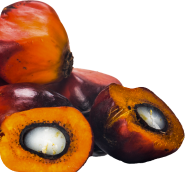
Palm oil plays a significant role in the global economy due to its widespread use across various industries. This versatile vegetable oil is a critical ingredient in food, cosmetic, and personal care products, as well as a wide range of industrial applications, including the manufacture of pharmaceuticals. The medicinal value of palm kernel oil should not be underestimated and it has a range of health applications. These include, but are not limited to:
- Excipient and Carrier Properties: Palm oil derivatives, such as glycerides and fatty acids, are often used as excipients and carriers in pharmaceutical formulations. Excipients are non-active ingredients included in medications to facilitate their manufacturing, improve stability, enhance drug delivery, and ensure proper dosage forms. Carriers, on the other hand, are substances that help transport the active pharmaceutical ingredient to its intended site of action within the body. Both excipients and carriers play essential roles in the development and effectiveness of pharmaceutical formulations by improving drug stability, solubility, and bioavailability, ensuring effective delivery of medications.
- Lubricant and Coating Agent: Palm oil derivatives, such as hydrogenated palm oil, find applications as lubricants and coating agents in tablet manufacturing. Lubricants are substances used to reduce friction and prevent sticking between the tablet’s components and the manufacturing equipment. Coating agents are applied to tablets to create a protective outer layer or to modify their appearance. These lubricants and coating agents play a crucial role in tablet manufacturing by facilitating the disintegration of tablets, allowing them to break down effectively when ingested, and by providing a smooth outer surface that makes swallowing easier for patients. This enhances the overall usability and efficacy of tablet medications.
- Emulsifying Agent: Palm oil derivatives, like palm oil esters, act as emulsifiers in pharmaceutical creams and ointments. Emulsifiers are substances that help combine two or more ingredients that don’t normally mix well, such as oil and water, creating a stable and uniform mixture. In the context of pharmaceutical creams and ointments, palm oil esters play the role of emulsifiers, ensuring that the various components within these formulations are effectively blended together. This is crucial for maintaining the desired consistency, texture, and appearance of creams and ointments, which in turn influences their application and therapeutic efficacy by ensuring the consistent distribution of active ingredients.
- Palm oil also offers several health advantages owing to its composition. It contains a balanced combination of saturated and unsaturated fats, including a relatively high proportion of monounsaturated fats, which are known for their potential to support heart health. Additionally, palm oil is rich in antioxidants, such as vitamin E tocotrienols, which have been studied for their potential to protect cells from oxidative damage and support overall well-being. The presence of carotenoids in palm oil, such as beta-carotene, provides a source of pro-vitamin A, which is essential for maintaining healthy vision and supporting immune function.
Several leading pharmaceutical manufacturers rely on palm oil and its derivatives for their medication production. Johnson & Johnson, a renowned pharmaceutical company, incorporates palm oil derivatives in various medications and healthcare products. The company is committed to responsible sourcing and production of palm oil and has outlined sustainability goals to ensure palm oil’s ethical and environmentally responsible usage.

Palm oil contributes to job creation within the pharmaceutical manufacturing sector and the crop’s cultivation, processing, and distribution offer employment opportunities across the value chain. While specific numbers may vary, the following figures provide insights into the employment impact:
Malaysia, a significant palm oil producer, employs thousands of individuals in the pharmaceutical manufacturing sector. These jobs encompass various roles, including research and development, formulation, production, and quality control.
Indonesia, another major player in the palm oil industry, also generates employment opportunities within the pharmaceutical manufacturing sector. While specific numbers are not readily available, jobs are created through ingredient sourcing, drug formulation, and manufacturing processes.
Palm oil and its derivatives hold immense importance in the pharmaceutical manufacturing industry. Their functional benefits and versatile applications contribute to the production of effective medications and healthcare products.
As consumers, it is essential to support pharmaceutical companies committed to sustainable palm oil sourcing and responsible practices. By choosing medications from companies dedicated to ethical sourcing, we can derive the many benefits of palm oil whilst ensuring environmental preservation and social responsibility.